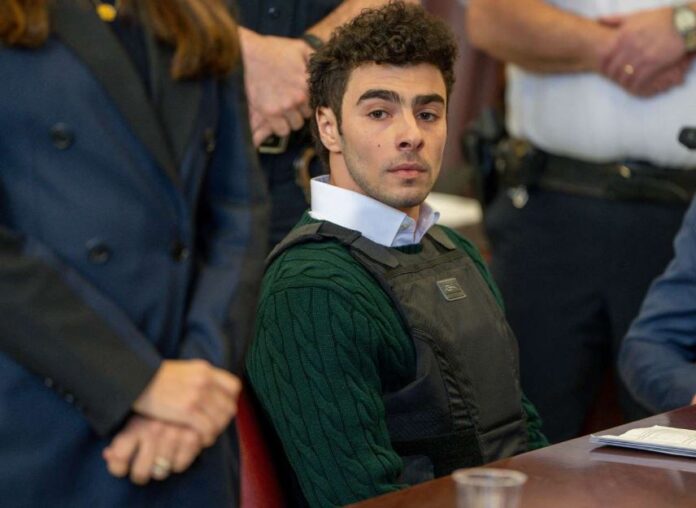New York: Luigi Mangione, the man accused of murdering UnitedHealthcare CEO Brian Thompson in a high-profile ambush last December, may soon have access to a laptop in jail to aid in his defense. On Thursday, New York State Judge Gregory Carro ruled that he has “no objection” to Mangione’s request for a device, provided federal authorities overseeing his detention approve. The decision marks a significant step in the closely watched case, which has gripped the nation with its blend of corporate intrigue and allegations of terrorism.
Mangione, a prep school and Ivy League graduate, is currently held at the Metropolitan Detention Center in Brooklyn, awaiting trial for the fatal shooting of Thompson, 50, outside a Manhattan hotel during an investor conference. He has pleaded not guilty to state charges, including murder as an act of terrorism, and faces a separate federal murder charge, to which he has yet to enter a plea. The laptop, if granted, would be restricted to viewing case materials and kept in a visiting room for Mangione’s use, according to the Federal Bureau of Prisons, which will review the request if formally submitted.
The ruling followed a virtual meeting between Judge Carro, prosecutors, and Mangione’s defense team on Thursday morning. Mangione’s attorneys argued that the sheer volume of evidence—documents, videos, and other items turned over by prosecutors—makes it impossible for him to adequately review it using the jail’s shared inmate computers or during limited attorney visits. They insisted a dedicated laptop is essential for Mangione to prepare his defense in what they described as a complex and sprawling case.
The Manhattan District Attorney’s Office, prosecuting the rare murder-as-terrorism charge, opposed the request, asserting that Mangione’s lawyers could present him with the critical evidence themselves. Prosecutors also raised security concerns, pointing to an odd incident last month when a handwritten, heart-shaped note of encouragement was found hidden in socks intended for Mangione to wear to court. The note was intercepted by a court officer before reaching him, and his attorneys denied any knowledge of it. The note’s author and origin remain a mystery, adding an enigmatic twist to the proceedings.
Judge Carro’s order came despite the Associated Press’s unsuccessful push to move Thursday’s discussion into open court. Court spokesperson Al Baker explained that such “off-the-record” conferences are routine for logistical and evidence-related matters, noting Mangione was not present at the meeting.
As the case moves forward, the laptop decision underscores the challenges of balancing a defendant’s rights with security concerns in a high-stakes trial. Updates will follow as federal authorities weigh in on the request.
Judge’s Ruling: On March 28, 2025, New York State Judge Gregory Carro stated he has “no objection” to Luigi Mangione receiving a laptop in jail to review case materials, though final approval rests with federal authorities overseeing his detention.
Case Background: Mangione is accused of murdering Brian Thompson, the 50-year-old CEO of UnitedHealthcare, in a December ambush outside a Manhattan hotel during an investor conference. He faces state charges of murder as an act of terrorism (to which he’s pleaded not guilty) and a federal murder charge (no plea entered yet).
Detention Details: Mangione is held at the Metropolitan Detention Center in Brooklyn. The laptop, if approved, would be restricted to case-related materials and kept in a visiting room for his use.
Defense Argument: Mangione’s lawyers requested the laptop, citing the overwhelming volume of evidence—documents, videos, and more—that he can’t adequately review on shared jail computers or during limited attorney visits.
Prosecution’s Stance: The Manhattan DA’s Office opposed the request, arguing that Mangione’s attorneys could show him key evidence and raising security concerns.
Security Incident: Prosecutors revealed a handwritten, heart-shaped note of encouragement was found hidden in socks meant for Mangione last month, intercepted by a court officer. The note’s source is unknown, and his lawyers denied involvement.
Procedural Context: The ruling followed a virtual, off-the-record meeting between the judge, prosecutors, and defense attorneys. The Associated Press unsuccessfully sought to open the discussion to the public.
Next Steps: The Federal Bureau of Prisons will review the laptop request if formally submitted, determining whether Mangione gets the device to aid his defense preparation.



